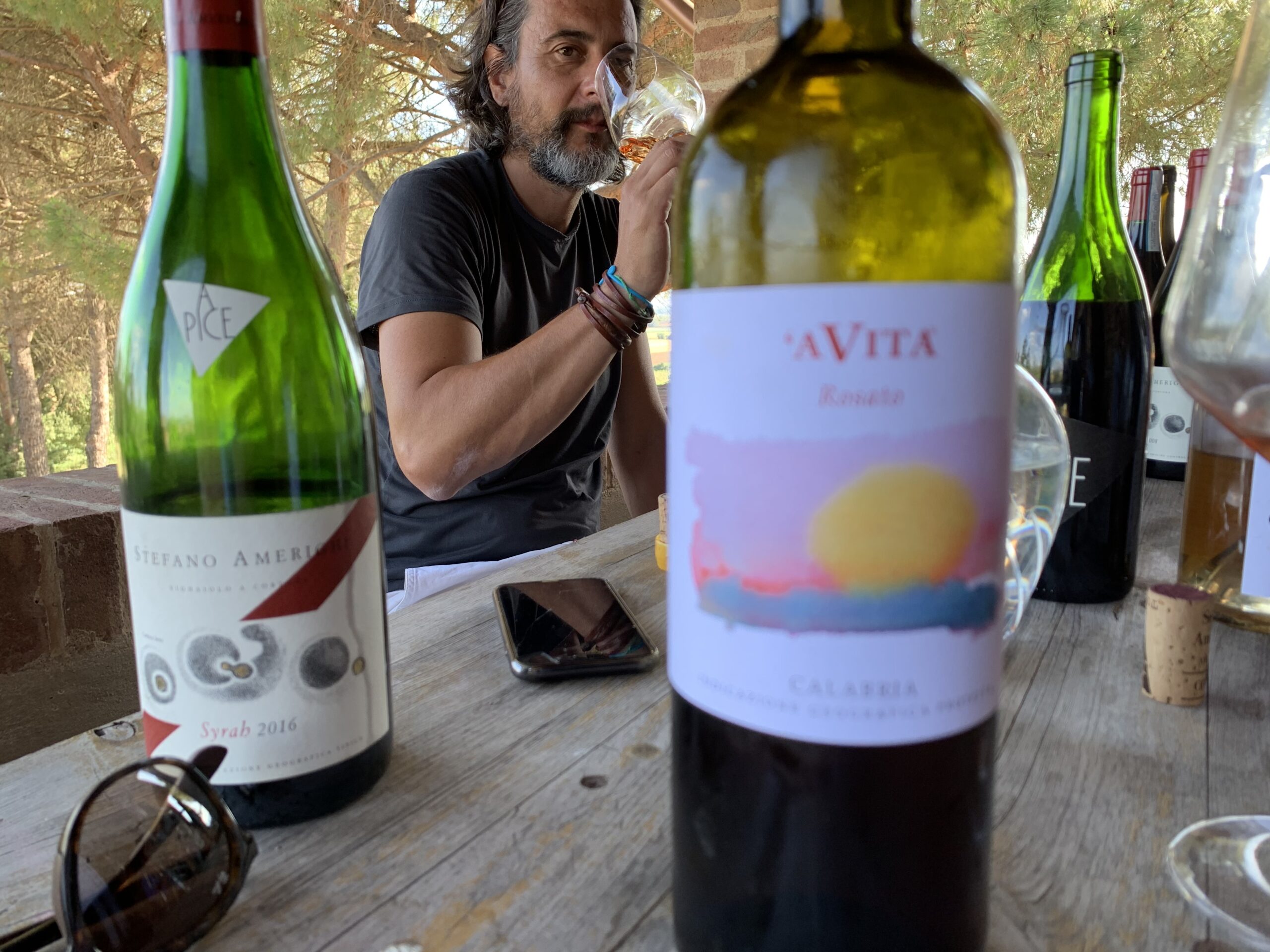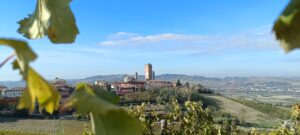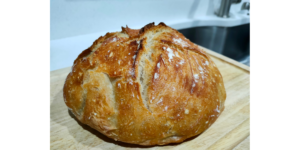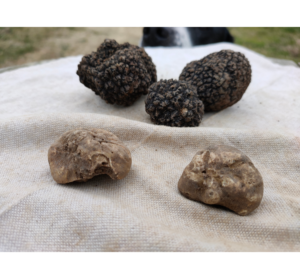I’ve always believed that when passions and work collide, it’s pure magic.
This perspective on life is what has driven me to every far flung corner of Italy in search of more Italian wine and food knowledge as well as interesting people that enrich the culture of the country.
Our adventure today takes us to Tuscany.
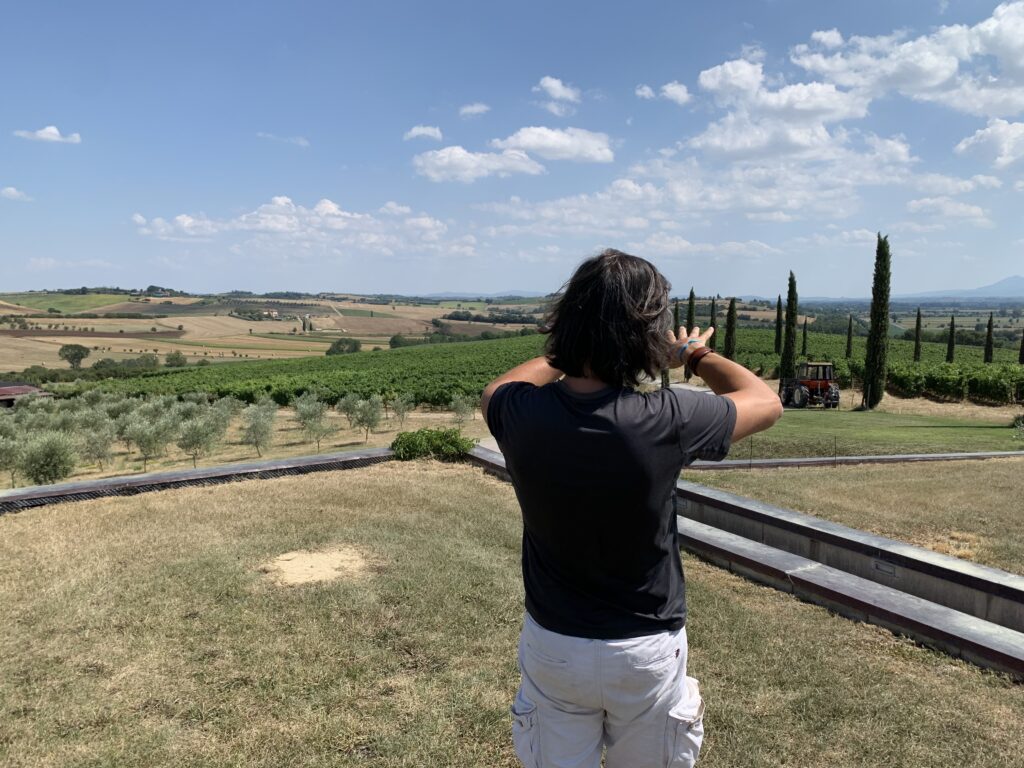
I had the pleasure of visiting with one of Italy’s biodynamic superstars, Stefano Amerighi of Cortona. From his vineyards you can actually see the town of Cortona which has forever been immortalized in American cinematic history in the movie “Under The Tuscan Sun”. I traversed across dirt roads to find the farm which I could see, but could not figure how to enter. After a brief phone call, Stefano pointed me in the right direction; I was literally 100 meters away). Upon my arrival, a gentleman called to me from the nearby pasture where Chianini cows roamed (which he uses for composting and part of his biodynamic process). He strolled up to me with his brown, “Jesus like” locks cascading across his shoulders and a Tuscan cigar perched upon his lips with the ease of an old friend stuck out his hand in greeting.
His hands were slightly calloused when I shook them which reassured me of his commitment to his vineyard and not one who dictates everything to others. He is most famous for his legendary Syrahs (Apice, Cortona) and his near maniacal obsession with Northern Rhone French Syrahs (Cote Rotie, Cornas, St. Joseph, Hermitage etc.). He also still presses his wine in the ancient way gently with their feet.
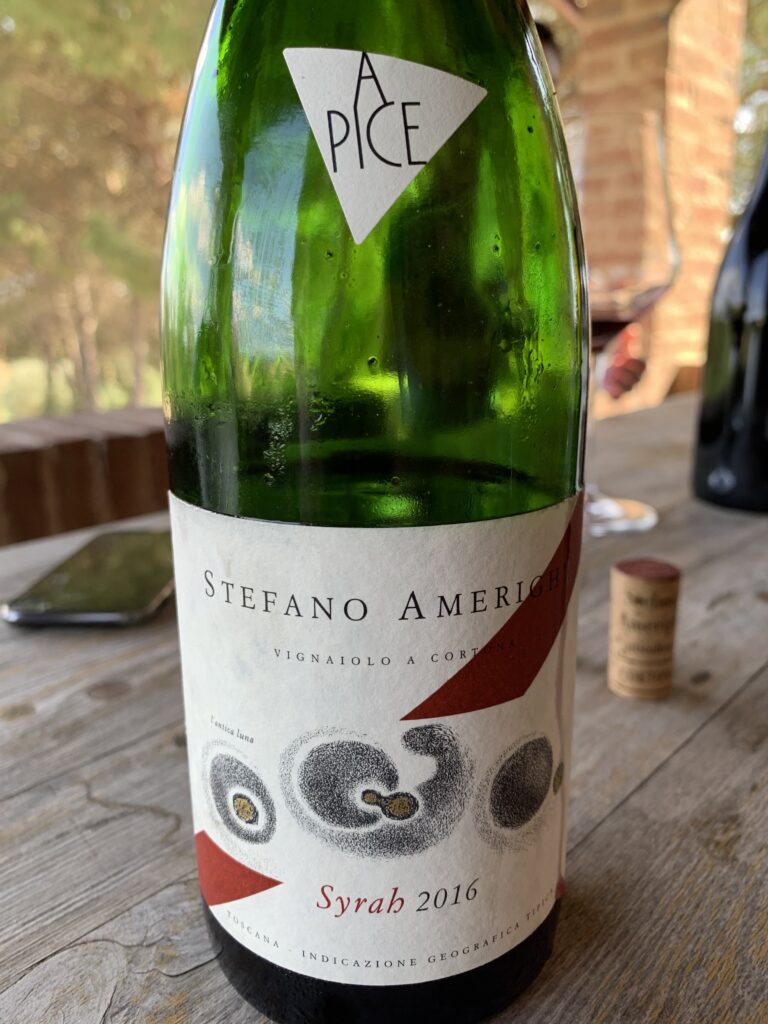
We shared similar stories of growing up on farms and the simplicity of it yet respect for nature is always present. We discussed philosophies in winemaking, other wine regions, new projects, failures and successes. Many people would love to write an article about all of Stefano’s amazing winemaking techniques, bio philosophies, technical data and overall elegance of his wines. It’s not that I don’t want to write about those topics, but I shall leave that style of article to someone else as it was my desire to dig deeper and pull back the layers of complexity to this farming genius. Here are five incredible lessons I learned during my time with Stefano.
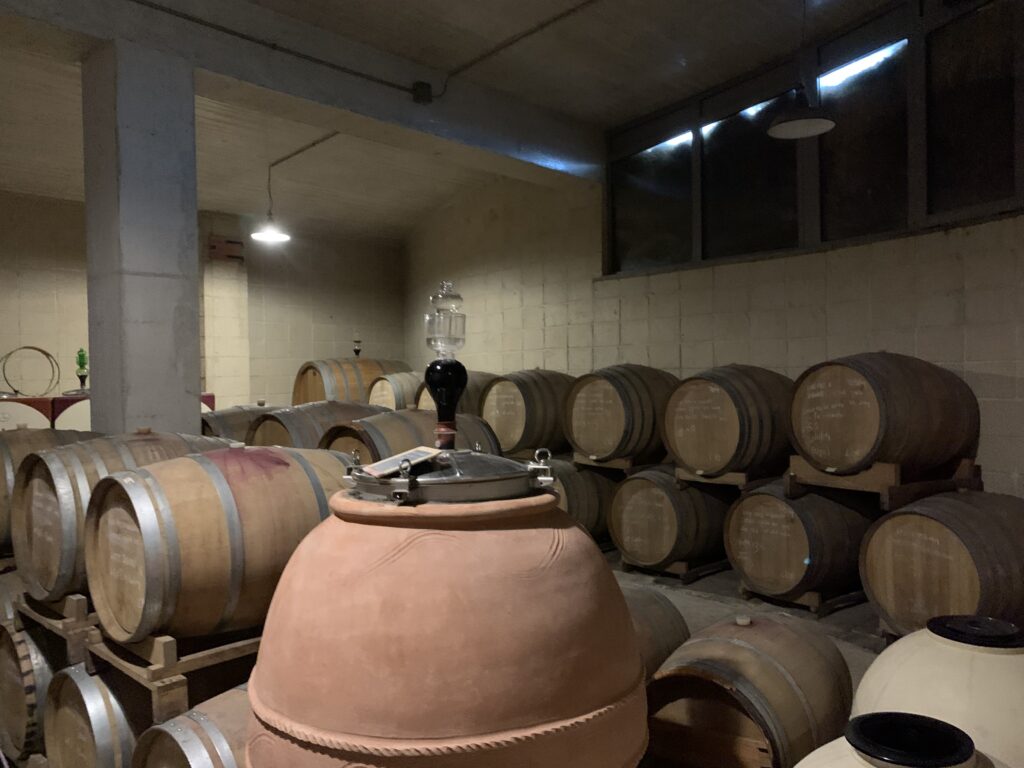
Follow Your Heart In Everything That You Do
I can’t tell you how refreshing it was to see Stefano act like a kid in a candy store when describing and sharing all of his wines and barrel samples with me. He had a dream over 20 years ago to start producing wine on his family farm and he stuck by his dream as a result of his passion. He also has another farm in Marche that is nearly three hours away (each way) because of an undying passion to produce a wine. Coincidentally, the wine he makes there is one of my favorites. It’s called Noe and its delicious!
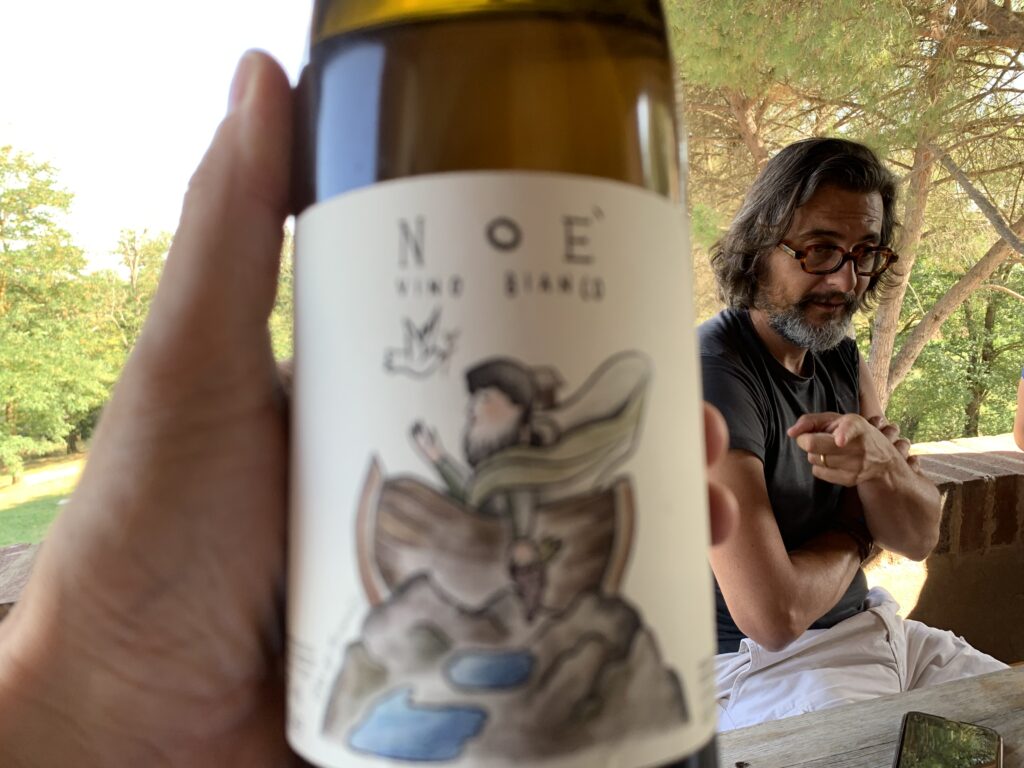
Some Of The Greatest Things In Life Come After Failure
As we were tasting through some of his barrel samples and concrete tanks he stopped and said, “No this one is a failure. I will not bottle this.” This showed me two things. One, he didn’t allow his ego to get in the way of forward progress and he is willing to admit when he is wrong. Two, failure is an essential part of improving the process through trial and error. Only when you fail can you appreciate how to succeed.
Draw From Your Roots To Find Your Way But Keep Your Mind On The Future
As Stefano and I walked around the vineyard it became abundantly clear to me that his heart is really that of a farmer with a nod to his ancestors and their perfected ancient techniques of making wines. He was so proud to share with me all the activities that takes place on his farm, from the cows, composting, new plant species and how at peace he seemed there. However, his inquisitive analytical mind drifted towards his passion of wine. No where else was this more evident than in the wine collection of other producers from Italy, France and California. I could also see his perspective on the future through his love affair with the Syrah Grape as he has an impressive collection of Cornas, Hermitage, Cote Rotie, St Joseph from France. This eye on all other Syrah producing regions helped me to realize that this man is compelled to have a well-rounded palate and also know the different expressions of terroir and fruit. This is the mark of somebody forward-thinking, with no ego and not stuck in the past.
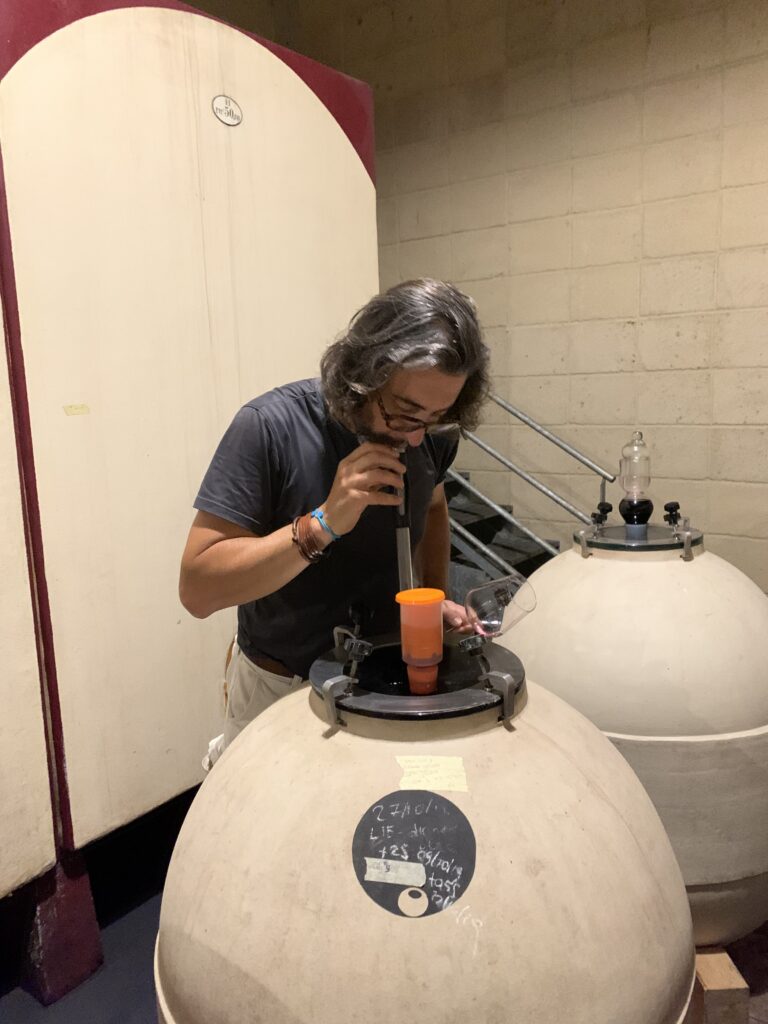
Being a great winemaker or farmer is a spiritual or religious experience.
“I have been handed the keys to another kingdom and i shall treat it like the blood of Jesus Christ”
Stefano uttered these exact words and what he meant was the absolute reverence in treating our grapes much like described in the bible. The absolute honor in which we have been given to make wine is sacred above all else and one should understand that this world of wine should be treated with care, respect and restraint. It is precious and one should respect it as so. I am not by any way shape or form saying that its more important than the blood of Christ. It is just an expression of sorts. His reverence for those before him and other producers around him was evident as well as he gave me the contact information for three other producers that he felt were better than him that I should meet.
Respect The Land And What It Gives You As It’s The Ultimate Boss
Everywhere around me in the vineyards and in the cellar Stefano demonstrated how he was using restraint and doing the least possible to interrupt nature taking its course. He also said that the moment he cuts the grape it is no longer biodynamic as the process of making wine itself is not natural. However his intention is to have the least impact on the wine of all and allow his magnificent terroir in Cortona speak for itself. This is an interesting concept and one perhaps maybe we should all adhere by to minimally disrupt the world around us at the same time of challenging yourself to go down your own path. Be kind to others and the land and you might be surprised at what it gives you in turn.
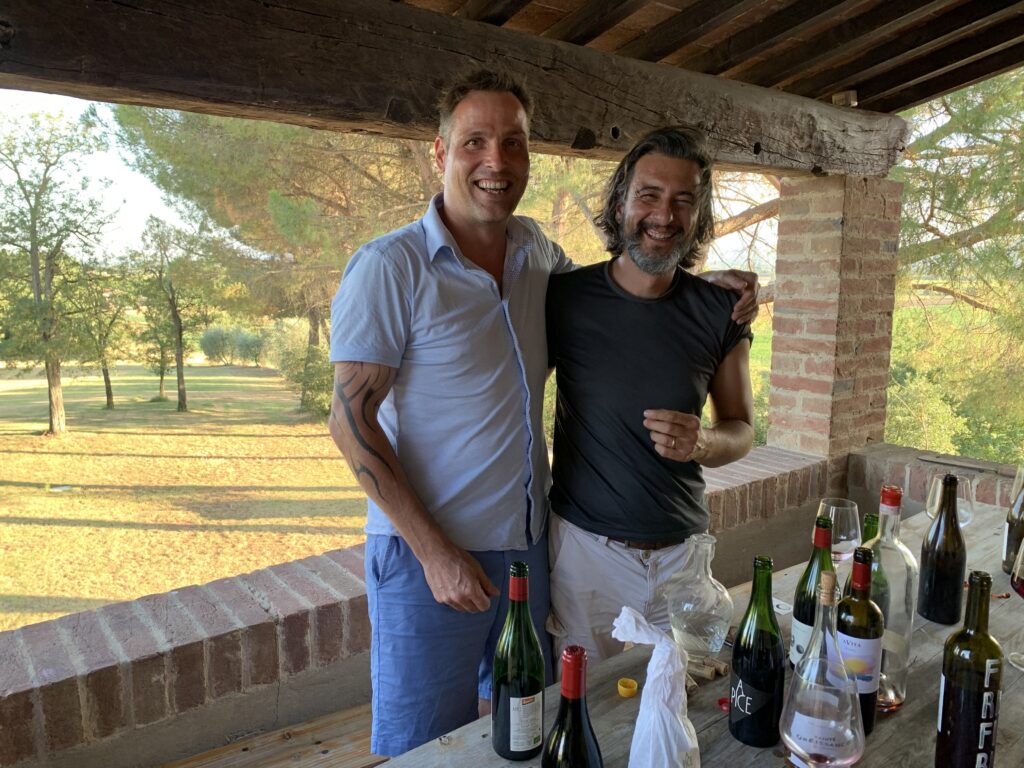
Stefano undoubtedly is a humble, respectful, complex, yet simple man whom I tremendously admire and believe that each one of us, whether you’re in the wine industry or not, could learn something from him.
It is amazing when you can learn from others and in this case, I was lucky to be on the receiving end of this sage’s wisdom. I look forward to the next time my friend Stefano and cannot wait to taste some of your new projects.
